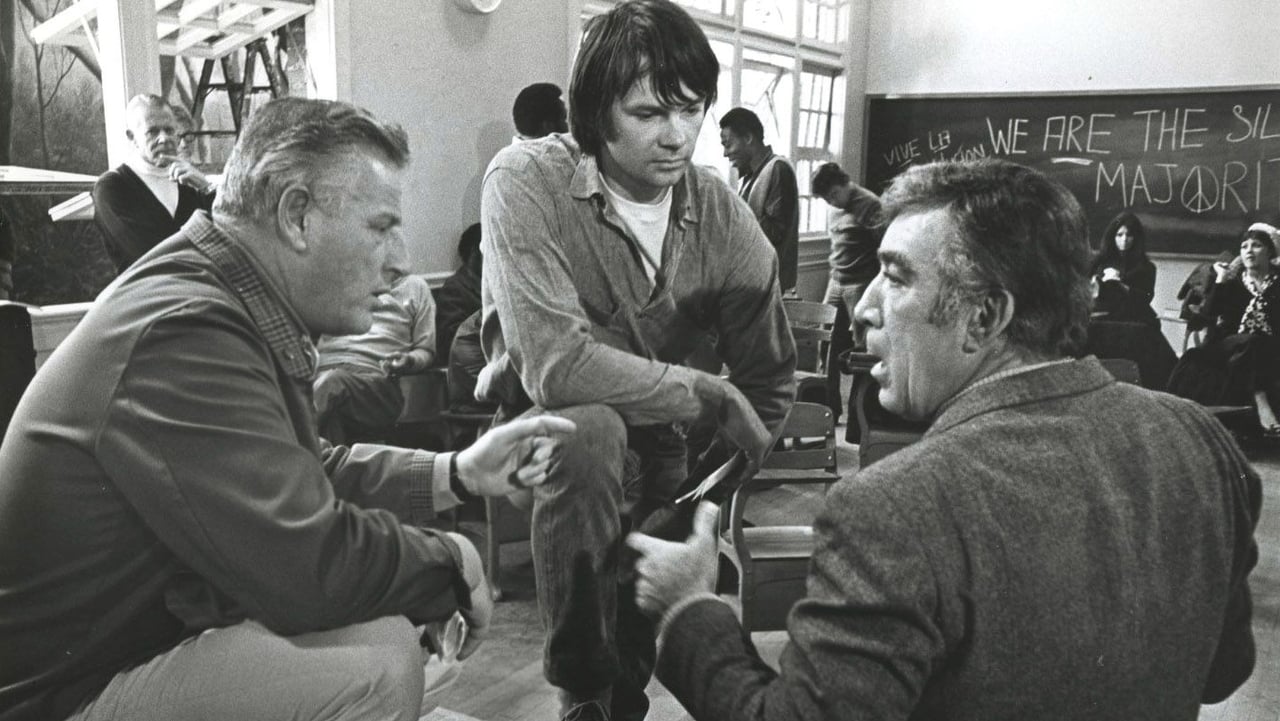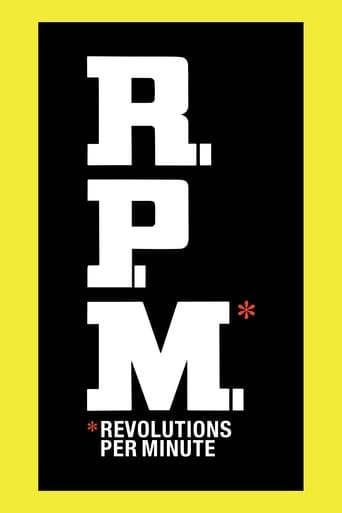Interesteg
What makes it different from others?
StunnaKrypto
Self-important, over-dramatic, uninspired.
Tedfoldol
everything you have heard about this movie is true.
Rio Hayward
All of these films share one commonality, that being a kind of emotional center that humanizes a cast of monsters.
romanorum1
In "R.P.M." students take over and occupy the administration building of a California college as school President Tyler resigns. After midnight, the College Board of Trustees decides to replace Tyler with Professor "Paco" Perez (Anthony Quinn), a 53 year-old sociology teacher. He has three main assets: (1) He is popular with the student body, (2) he has a Spanish surname, and his hiring would exemplify progressivism, and (3) he lives with a 25 year-old graduate student Rhoda (Ann-Margret) who has difficulty in staying clothed. An obvious liberal, Perez attempts to negotiate with the students. A problematic situation arises as he became part of the "establishment" when he was appointed by conservative deans. He agrees with 75 percent of the student demands, but those concessions are not enough. One of the three demands not accepted is that the students want to hire the professors! But the students, led by 33 year-old grad student Gary Lockwood (Rossiter) and 31 year-old Paul Winfield (Dempsey), are reticent. When they do not obtain acceptance on ALL of their demands, they foolishly decide to destroy school property (computer equipment). As Perez is backed up against a wall, his option is to call in the police. So where is the resolution? Erich Segal's script is trite and hardly rises above comic-book level. Concerning the film's direction, where is the genuine emotion and character development? Anthony Quinn is always good, but in this movie he is miscast. Worse, 30 year-old Ann-Margret's performance as a collegian is ludicrous; she is way too old to be a typical grad student. As she does not exactly radiate intelligentsia, one wonders how she ever became an undergraduate. The impression does arise that she may have earned her bachelor's degree by lying on her back. Chemistry is lacking between her and lover Quinn, whom she even calls a hypocrite. Both Lockwood and Winfield are also too old for their respective characters.The late 1960s and early 1970s was a time of college campus radicalization, although the students on the far left comprised only a small percentage of the school population. But they were both vocal and active. They were quite volatile, hence R.P.M. = Revolutions per Minute. All in all, this pointless movie certainly shows its age.
gamay9
This film is relevant because nothing did change between the film's release date in 1970 and the two generations which have followed.In a conversation on the stairwell toward the end of the film, Anthony Quinn and Gary Lockwood discuss change, indicating that nothing happened between Quinn's and Lockwood's respective generations. Nothing has happened in the two generations that followed, i.e. 1990 and 2010.The sad fact is that society has degenerated. I graduated from a very liberal Big Ten school in 1962 and we didn't have campus unrest. After that, I began a successful career which was interrupted by the draft and a tour in Vietnam. I returned to work and became even more successful because I worked smart and hard. The draft saved me and I wish the draft would have never ended, although I think the Vietnam war was futile. Young men need military service to GROW UP! As for Ann Margaret, she always played sexy but never nude, except for her role in 'Carnal Knowledge' where viewers experienced her large arse.Despite Ann's frivolous on-screen characters (I wonder how she was in private life) this was a film that predicts the future, as in...'Oh yah, life goes on, long after the thrill of living is gone.' (John Mellancamp).
JasparLamarCrabb
Dull as can be. A terrific performance by Anthony Quinn not withstanding, Stanley Kramer's expose of college campus revolutionaries is a very bad movie. Quinn is a liberal Sociology professor promoted to college president to help squelch the political activities of students Guy Stockwell, Paul Winfield and their minions. Kramer infuses his film with absolutely nothing interesting. Instead of coming across as one of Hollywood's great progressives, this blunder makes him look like a very old fogie. Quinn is actually believable as a college professor and has great chemistry with sexy but smart coed Ann-Margret. However, very few in the supporting cast, aside from Ann-Margret, even register. Stockwell & co. are mired in pseudo-revolutionary chatter, throwing out the occasional dirty word while berating Quinn as just another square establishment figure. The didactic script is by Erich Segal, the genius who also concocted LOVE STORY.
moonspinner55
Campus radicals threaten to take over their university; newly-appointed campus president Anthony Quinn attempts to act as a mediator between the angry kids and the stuffy deans. Dated, talky rabble-rouser from esteemed director Stanley Kramer, working from a weak script by "Love Story" author Erich Segal. Segal doesn't lend much insight into the students or their demands, but Kramer gets a pretty good performance from Quinn, trying hard in a hopeless role. Ann-Margret has a small but colorful part playing Quinn's girlfriend. Otherwise, what might have been a fairly timely melodrama is instead tired, drab, and ultimately pointless. *1/2 from ****


